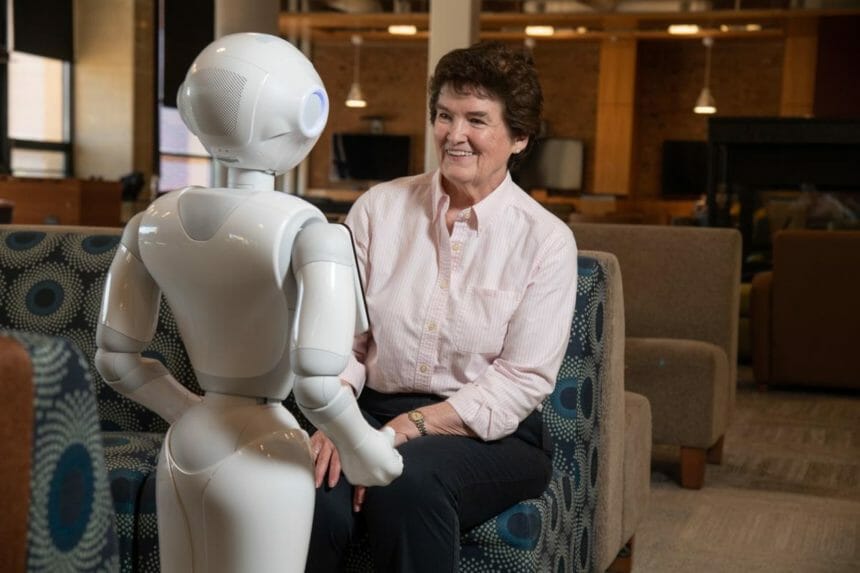
A University of Minnesota Duluth professor is researching the use of social robots — or “gossip bots” — to interact with and monitor assisted living residents. Pepper is a social robot manufactured by SoftBank Robotics based in Tokyo. Using human-like behaviors, the robots can maintain eye contact with older adults and encourage them to be more active.
Arshia Khan, Ph.D., an associate professor of computer science, is programming Pepper to serve one day as a personal caregiver assistant for people with early stage Alzheimer’s disease or vascular dementia, as a way to prolong independence.
Using cameras and sensors, the four-foot-tall Pepper can detect facial expressions, tone of voice and physical movement. Through a wireless device worn by the resident, Pepper can monitor pulse, body temperature, balance and sleep habits while also watching for falls, side-to-side gait and balance issues. Over time, the robot learns individual routines and can remind a resident to take medications or do their exercises.
Pepper also can alert a physician or family member when a resident’s habits or health change.
“Wearable sensors allow for live and ongoing collection of biometric data, but this can be difficult for patients to understand and interpret. Combining wearable and space sensors with therapeutic robots can provide a human-like social interface for people affected with dementia, especially women,” Khan said. “We are using technology in helping them at least maintain their quality of life, if not improving their quality of life.”
Khan is working with an interprofessional team that includes a computer scientist/roboticist, philosopher, epidemiologist/focus group specialist, dietitian, clinical ethicist, mechanical engineer, futurist, marketing specialist and pharmacist to address augmenting dementia care. The team is investigating the feasibility of combining assistive therapeutic robots, an intelligent pill dispenser and wearable sensors to complement human caregiving.
The team hopes to design an innovative dementia-friendly living space by conducting focus groups with patients, caregiver and providers.
“We will explore the proper placement of different sensors, the mechanical and technical needs of robots to freely move in a space equipped with the basic amenities that offer a safe and secure living space for people affected with dementia,” Khan said.
Khan’s Dementia and Elderly Care Robotics and Sensing Lab is home to several robots and wearable sensors to help older adults, people with dementia, children affected with communication disorders or autism spectrum disorder and people with spinal cord injuries.

